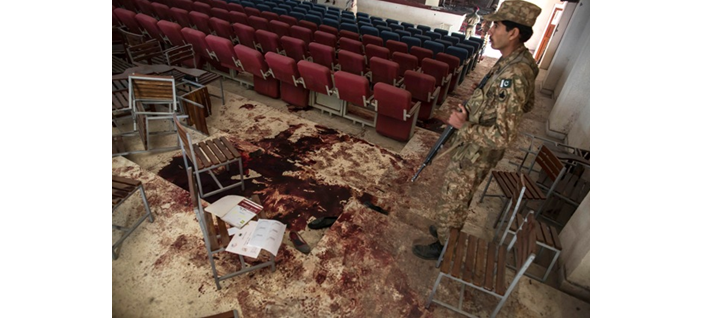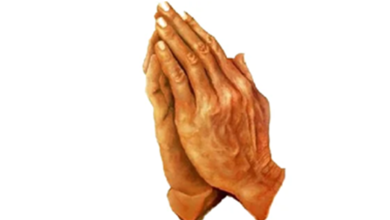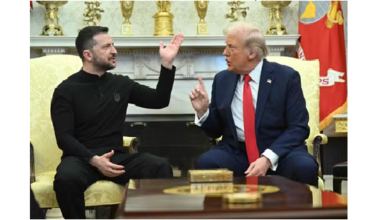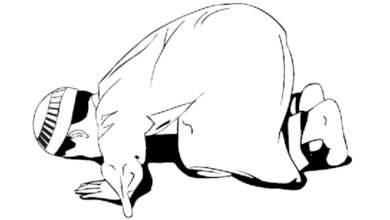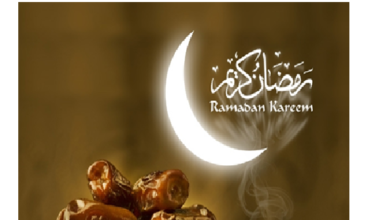Critical Moments in History: Revenge or Justice?
The Insult to Islam Under the Guise of Revenge
History, written in blood-stained corridors and within the royal courts of palaces, has long narrated the tale of human cruelty, oppression, and savagery through a single stone. This stone first witnessed the sacred head of Imam Hussain, the martyr of Karbala, being presented before Ibn Ziyad as a testimony to his valiant stand for the truth. Later, the same stone bore witness as Ibn Ziyad’s head was presented to Mukhtar bin Saqafi. The stone continued to tell its tale when Mukhtar bin Saqafi’s head was placed before Abdullah bin Zubair, and eventually, the head of Abdullah bin Zubair was placed on this very stone before Hajjaj bin Yusuf, bearing witness to the relentless cruelty of history.
The desecration of headless corpses and the display of severed heads was a practice of those in whom barbarity triumphed over the respect for humanity or those whose thirst for vengeance compelled them to follow the same acts against which they once raised their voices for justice.
Even today, when I read these stories from history, I shudder at the sheer cruelty of human savagery. I am left in a state of bewilderment, wondering what response I should give to my grandchildren if they, while studying Islamic history, turn their innocent questions towards me. How can I answer in a way that preserves the purity of their young minds from the filth of such tyranny? The grief of the Prophet ﷺ, as he witnessed the mutilation of his beloved uncle Hamza’s sacred body in the valleys of Uhud, flashes before my eyes. The Prophet ﷺ wept uncontrollably when he saw his uncle’s body, and the Ansar and Muhajireen of Medina left their own martyrs to console the Prophet ﷺ. What a scene it must have been when the Mercy to all worlds ﷺ held his uncle’s young son in his lap, delivering the news of his father’s martyrdom to his wife and children, while repeatedly tearing up. As I write this, the sorrow overwhelms me, and even my pen seems to wail in lamentation.
I am reminded of the instructions given by the Prophet ﷺ when sending out the army for Jihad: not to destroy crops, not to mutilate any bodies, not to harm women or children. But the mockery made of these instructions by this Ummah, as recorded in history, weighs heavily on my soul. Yet, the greatest tragedy of my life is witnessing this mockery with my own eyes, an ongoing agony I have endured for the past four decades. The horror is compounded by the fact that these acts are being committed by those who claim to follow the teachings of the same Prophet ﷺ, who are supposedly the torchbearers of his pure religion, and whose tongues are constantly praising the love for his family and companions.
How can I forget the day, July 5th, 1985, in Quetta when a procession was to be held for the implementation of Shariah? Zia-ul-Haq’s regime was a proponent of Islamic rule, but only as interpreted by his advisors, while the opposition stood against him. Dictatorship, by its nature, seeks to silence voices with force. The heavy presence of police blocked the path of the procession. Negotiations were ongoing, with orders from above to prevent the procession at any cost. It was suggested, with folded hands, that allowing the procession was the best way to avoid bloodshed, but a dictatorship values its authority more than the lives and honor of its people. A magistrate declared the procession illegal over a megaphone, and then the area turned into a battlefield. Tear gas, batons, and bullets were used, and by evening the entire area was engulfed in smoke, with the severed heads of policemen hanging from poles. Could the oppression and brutality of dictatorship drive someone to such a level of vengeance that they begin to emulate the very acts they once protested against?
Moving forward, in August 1989, in the city of Pishin, two commanders, who had fought in the path of Allah, had a disagreement. Guns were drawn, and bodies began to fall daily. Each called the other a hypocrite, a heretic, and an agent of Russia. The Sarakhab camp became a battlefield. Eventually, one group fled to Afghanistan. But the victorious Afghan Mujahideen commander’s thirst for vengeance was not quenched. He sent a “Jihad”-fuelled squad to Kandahar to annihilate them. These vengeful fighters, driven by their so-called zeal for Jihad, went to Kandahar, where bloody and terrifying battles ensued. Two of the group’s commanders were killed, and as a symbol, their heads were severed, hidden in sacks of onions, and brought to the Sarakhab refugee camp in Pishin, Pakistan, where they were hung from trees. This act of humiliation was such a human degradation that no one expected from those who claimed to be fighting in the path of Allah, nor could anyone tolerate it.
The people were speechless; no condemnation was heard from the mosque loudspeakers, nor did any voice of protest arise from the pulpit. When a person devoid of faith and morals engages in displaying severed heads and desecrating lifeless bodies, one might mourn their ethnic prejudice. Such actions are often committed by those blinded by a legacy of vengeance and familial retribution.
I remember witnessing the murder of Mian Akbar in Gujarat when I was only eight years old. On our way to the Friday prayer with my father, the blood trails stretched from the site of the murder to the graveyard as the killers dragged the corpses to the grave of their father as a testimony of their revenge. But when I heard about the exhibition of severed heads and the desecration of bodies in the markets of Swat, by those whose lives were spent preaching the principles of Islam—principles of war, peace, and reconciliation—I could not help but cry over our misfortune. It made me ponder that the calamities of American subjugation, cruel dictatorships, and lawlessness that have befallen us are nothing but the outcomes of our own deeds.
As I continue, my pen feels compelled to recount another catastrophe. You may recall that heart-wrenching incident when the streets of Peshawar were suddenly filled with wailing ambulances blaring sirens, creating a scene of a mini-apocalypse. The entire nation, indeed the whole world, was plunged into grief, shock, and a state of utter silence, beseeching the Almighty for mercy and compassion. Upon hearing the devastating news, parents, bareheaded and barefoot, ran frantically through the streets searching for their loved ones, trying desperately to shield their children from the approaching disaster.
کیاخوب پسندہے تیری اے فرشتہ اجل
پھول بھی وہ چنے جوگلشن کوویران کر گئے
How beautiful is your choice, O Angel of Death!
You picked the flowers that left the garden desolate
Another tragic memory was added to the sorrowful date of December 16, when the city of flowers, Peshawar, was stained with the blood of innocent children—children who, holding pens and books in their hands, were fulfilling the command of their Prophet (PBUH) to seek knowledge. They were not even granted the chance to tell their mothers, “Look, mother! The ink of our blood has become the medium of salvation for us all in the hereafter.” Today, my heart once again aches with unbearable pain; even the word “pain” seems inadequate to describe the grief. It is a wound for which no remedy seems possible. My body trembles, my hands shake, and my mind has become numb. Those terrifying scenes continue to haunt me: the perpetrators of the terrorism in our country were the same people we had hosted for years, and even now, these very few individuals are bleeding us dry from within this land. We not only shed equal amounts of blood for their protection, but had Pakistan not been their neighbour, the crown of freedom would have remained far out of their reach.
The Almighty has said, “As you are, so will be your rulers.” When the righteous are overcome by the spirit of vengeance and abandon the teachings of their forefathers, what else can one do but lament over fate? The ones intoxicated with the zeal for implementing Shariah might do well to remember the incident of Hazrat Ali (RA). He once overpowered a disbeliever, pinning him down. The man spat in his face, and instead of beheading him, Hazrat Ali (RA) stepped back, saying, “If I kill you now, it will be out of personal revenge mixed with my intention of Jihad in the way of Allah.” How wonderful it would be if, in such moments, a voice from a mosque’s loudspeaker, from a pulpit, or from the passionate oration of a religious scholar could rise up and say: “We fight against oppression, tyranny, and godlessness solely for the sake of Allah. If even the slightest impurity or vengeance taints our intentions, not only will our deeds be wasted, but the world will also begin to despise our teachings.”

